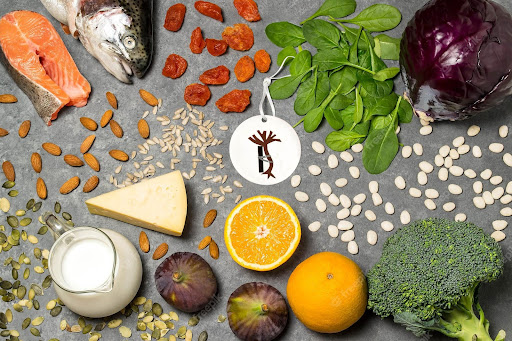Inflammation is a natural response that helps our bodies heal from injuries and fight off infections. However, when inflammation becomes chronic, it can lead to various health issues such as fatigue, trouble sleeping, and an increased risk of diseases like asthma, diabetes, heart disease, autoimmune disorders, and even cancer. The good news is that you can reduce inflammation by making simple changes to your diet. In this article, we will explore seven healthy foods that can fight inflammation and boost your energy levels.
1. Char-grilled meat: Proceed with Caution
Char-grilled meat, with its delicious smoky flavor, is a popular choice for many. However, cooking animal protein at high temperatures can lead to the formation of compounds called heterocyclic amines (HCAs), which can cause oxidative stress and cellular damage. Red meat, in particular, is classified as “probably carcinogenic” by the International Agency for Research on Cancer.
To minimize the potential harm, consider marinating your meat in a mixture of lemon juice and herbs and spices. Black pepper, rosemary, thyme, oregano, basil, sage, and marjoram are all rich in antioxidants that can counteract inflammation.
2. Processed meat products: Choose Alternatives
Processed meat products like salami, bacon, and hot dogs are not only high in saturated fat but also contain sodium nitrite, a compound that may increase the risk of gastric cancer. Additionally, these foods are a significant source of advanced glycation end products (AGEs), which can cause oxidative stress and inflammation.
To reduce inflammation, opt for healthier alternatives such as lean cuts of fresh meat, poultry, or plant-based protein sources like beans, lentils, and tofu. These options are not only lower in saturated fat but also provide essential nutrients and fiber.
3. Alcohol: Moderation is Key
While a glass of red wine can provide health benefits due to its content of resveratrol, excessive alcohol consumption can be inflammatory. Research has shown that alcohol induces inflammation in the gut and is closely linked to conditions like cancer, liver disease, and neurological damage.
It’s important to consume alcohol in moderation. The American Heart Association recommends limiting your intake to two drinks a day or less for men and one drink a day or less for women. However, some studies suggest that abstaining from alcohol altogether may be the healthiest choice.
4. Deep-fried foods: Opt for Healthier Cooking Methods
Deep-fried foods, especially when cooked in reused oil, can create inflammatory molecules. Cooking with oils that have a low smoke point, like extra-virgin olive oil, can also lead to inflammation when the oil reaches its smoking point.
To minimize inflammation, choose healthier cooking methods such as baking, broiling, steaming, or grilling. If you prefer frying, use oils with higher smoke points like avocado oil, which can withstand higher temperatures without creating harmful inflammatory compounds.
5. Sugary foods and drinks: Reduce Added Sugar Intake
High consumption of added sugar can increase inflammation and contribute to weight gain, which is associated with chronic inflammation. Research has shown that people who consume a significant amount of sugar-sweetened beverages have elevated levels of C-reactive protein, a marker of inflammation.
To lower inflammation, limit your intake of sugary foods and drinks. The American Heart Association recommends no more than nine teaspoons of added sugar per day for men and six teaspoons per day for women.
6. Ultra-processed foods: Choose Whole Foods
Ultra-processed foods, often found in boxes or bags with lengthy ingredient lists, can trigger chronic inflammation by altering the composition of bacteria in your gut. These foods often contain chemicals and other ingredients that are inflammatory.
Opt for whole, minimally processed foods like fruits, vegetables, whole grains, lean proteins, and healthy fats. These foods are rich in nutrients and antioxidants that can combat inflammation and promote overall health.
7. Highly refined carbs: Embrace Whole Grains
Refined carbohydrate products like cookies, crackers, and white bread can cause a rapid spike in blood sugar levels, triggering an inflammatory response. Instead, choose whole grains like quinoa and brown rice, which take longer to digest and have a lower impact on blood sugar levels.
Whole grains provide a steady source of energy and are rich in fiber, vitamins, and minerals. They can help reduce inflammation and provide long-lasting energy throughout the day.
By incorporating these healthy foods into your diet and reducing the consumption of inflammatory foods, you can support your body’s natural healing processes, boost your energy levels, and reduce the risk of chronic diseases.







